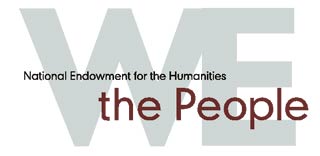The Boston Tea Party
Introduction
In April 1770, Parliament rescinded the Townshend duties on four of the five commodities that had been taxed; the duty on tea remained in force. Outraged patriots sought to shore up sagging efforts to boycott tea by appealing to merchants (nonimportation) and the citizenry (nonconsumption). But people loved their tea, and their resolve weakened.
In the spring of 1773, the East India Company had a large amount of surplus tea on hand. To aid the failing company, thwart the smuggling of Dutch tea, and reassert its authority to levy taxes on the colonies, Parliament authorized the Tea Act on 10 May 1773. Tea sold in America would carry no duty for the East India Company; instead, the tea would be taxed at the point of entry in colonial ports. Consignees, or special agents, were appointed in Boston, New York City, Philadelphia, and Charleston to receive and sell the tea.
In the fall of 1773, as newspapers publish the particulars of the East India Company plan, colonists learn that the tea is coming. Protests soon circulate. Writing out of Philadelphia, "Scaevola" rebukes the tea agents, calling them political bombadiers. Refusing a summons to resign their commissions, Boston's tea agents counter that they are the true sons of liberty. Demonstrating its decided disagreement, a patriot mob storms Richard Clarke's King Street shop on 3 November.
Boston's consignees petition the governor to safeguard the tea once it arrives, but with British forces confined to Castle William since the unfortunate events of the Boston Massacre, Hutchinson is powerless to oblige. The streets belong to the opposition.
On Sunday, 28 November, the Dartmouth, carrying 114 chests of tea, arrives in Boston Harbor. A meeting, open to all Bostonians and anyone from neighboring towns who chooses to attend (a group identified as the Body), is called at Faneuil Hall. When the crowd swells, it adjourns to Old South Meeting House. The Body speaks, demanding that the tea be returned, and the assembly appoints a watch of 25 men to guard Griffin's Wharf.
From Philadelphia and New York, news arrives that anyone attempting to land the tea in those ports should beware an unwelcome visit. By 2 December, consignees have resigned in three port towns, and the taunt goes forth: Will you shrink at Boston?
By 15 December, the Eleanor and the Beaver, also both laden with tea, arrive at Griffin's Wharf. The law is clear: if the duty on the Dartmouth's tea is not paid by 17 December, the customs officer is authorized to seize the ship and its cargo. The governor, the ships' owners, and the tea consignees all refuse to return the tea to England. Voting at a 16 December meeting at Old South, the Body resolves to prevent the East India tea from being landed, stored, sold, or consumed. At the conclusion of the meeting, the crowd streams out onto the street, chasing 30 to 60 men dressed as Indians down to Griffin's Wharf. In what John Adams calls an intrepid "exertion of popular power," the men proceed to dump 342 chests of tea into the sea.
Governor Hutchinson is incensed, calling the dumping of the tea high treason. Energized by their victory, boisterous patriots urge Bostonians, "keep up your courage." When news of the event arrives there, New York celebrates Boston's Indians, as does Philadelphia. Boston, once suspect, is now praised for its steadfast opposition to tyrannical English policies.
Not all, however, applaud the Destruction of the Tea (later designated the Boston Tea Party). At the end of January, the town of Marshfield urges good and loyal subjects to speak up against the Bostonians' unlawful act. Still, in March, Indians are found destroying the tea—again. And in April, another episode raises questions whether the perpetrators are good Indians or bad Indians.
In February, the tea ship captains arrive in England and are summoned to testify before the Privy Council; since they are not able to identify individuals responsible for the destruction of the tea, the government decides to punish the entire town of Boston. Until the East India Company is reimbursed for its loss, the port of Boston will be closed.
List of supporting documents:
Rowe's Revolution
"A Number of People appearing in Indian Dresses went on board the three Ships Hall Bruce & Coffin they opend the Hatches hoisted out the Tea & flung it overboard....Tis said near two thousand People were present at this affair."
Diary of John Rowe,
16 December 1773





![Broadside, Boston, December 1, 1773, At a Meeting of the People..., [Boston, 1773]](/database/images/0882_full_work_th.jpg)




![Broadside, Tea Destroyed by Indians, [Boston, 1773]](/database/images/teadestroyed_1_th.jpg)





